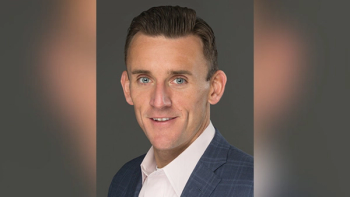
- Pharmaceutical Executive-01-01-2021
- Volume 41
- Issue 1
Prescriber Hesitancy on COVID Vaccines
Data suggests physicians just as hesitant as patients, but recent successes could turn the tide.
The Advisory Committee on Immunization Policy (ACIP) to the US Centers for Disease Control (CDC) knew it. Data from multiple sources showed it. Mitigation of the global pandemic will require “high coverage” with COVID-19 vaccines driven by a well-orchestrated public health response that educates the public on their safety and efficacy and eradicates vaccine hesitancy.
And not just for patients.
Data suggest that physician prescribers are just as hesitant as patients when it comes to COVID-19 vaccine safety, distribution, logistics, and rollouts. Data sourced by InCrowd from Oct. 22–26, 2020 show that just half of US infectious disease specialists feel highly confident in prescribing an FDA-approved COVID-19 vaccine. With these physicians estimating that 40% of their patients will be vaccine-hesitant, findings suggest physicians are only slightly more confident in the vaccines than patients.
ID specialists, at the time of the study, also had little faith in governmental entities and their approach to the pandemic. Just one-quarter of respondents feel confident in Federal policies about vaccine rollout (21%), vaccine distribution, and logistics (22%), and vaccine safety (26%). Few respondents feel better about state and local government efforts. Only one-third feel confident in local and state policies about vaccine rollout (32%), vaccine distribution and logistics (35%), and vaccine safety (36%).
Primary care physicians (PCPs), pediatricians, and emergency medicine/critical care doctors on the front lines of treating COVID-19 share similar concerns and have throughout the pandemic. In data sourced Sept. 6–9, 2020, 53% of frontline treaters said they felt confident in prescribing a COVID-19 vaccine. As the pandemic evolved, these physicians have given increasingly lower marks to governmental preparedness. By June, only 13% of frontline treaters said they had confidence in the US government’s preparedness for handling the COVID-19 crisis, down from a starting level of 35% in January 2020.
In a seven-nation global study of PCPs by SurveyHealthcareGlobus (SHG) on Sept. 5–9, 2020, US PCPs had the lowest confidence in government policies about vaccine safety and vaccine rollout, with less than a third expressing confidence. In contrast, German confidence levels ranked 21% to 25% higher.
Left unmitigated, prescriber hesitancy represents “a risk for overall vaccine confidence,” as the ACIP said in its “Vaccinate with Confidence” framework,1 shared in a CDC forum in late October. The program outlined a national strategy in part to “build trust in the vaccine, the vaccinator, and the system.”
The trust-building is urgently needed. Just 63% of healthcare workers expect to obtain a vaccine themselves, according to a CDC survey presented in a late November ACIP meeting. Yet infectious disease physicians in InCrowd’s October 2020 survey estimated that, on average, 71% of the US population will need to be inoculated in order to achieve herd immunity. The sizable eight-point gap between the herd immunity target and the plans of the healthcare community itself highlights the challenge.
Exactly how prescriber hesitancy translates to prescriber behavior in recommending the vaccine for patients and their own vaccination plans is not fully clear. Yet physicians’ verbatim remarks highlight the need for data on safety and efficacy, in the face of a vaccine development effort that compressed a typically multi-year process into less than a year, among other factors.
“They have to be proven safe and gone through the full vetting process in order to make the public believe the vaccine is safe,” cautioned an ID specialist from PA.
“I personally would not be able to push as hard [for the COVID vaccine] as I would for the flu, due to the lack of data,” said an ID specialist from TX.
As early vaccine trial data has been positive, forthcoming reports may bring data that reflect a brightened outlook. Yet as rising incidence and mortality rates in the US highlights what’s at stake, heeding the voice of the prescriber community will be essential to moving from talk and planning about a COVID-19 vaccination program, toward an effective, life-saving response.
Reference
Daniel S. Fitzgerald, CEO of Apollo Intelligence, parent company of InCrowd and SurveyHealthcareGlobus
Articles in this issue
about 5 years ago
2021 in Focus: Pharm Exec’s Annual Industry Outlookabout 5 years ago
‘Breakthrough’ Balancing Act: The Decline of the Value Propositionabout 5 years ago
More Cloud on the Horizon for Pharmaabout 5 years ago
A New Year for Sustainable Governanceabout 5 years ago
Bound By Bloodabout 5 years ago
Pharmaceutical Executive, January 2021 Issue (PDF)about 5 years ago
Pharma in Spotlight as Pandemic Continues in 2021about 5 years ago
Six Degrees of 2020about 5 years ago
Why Investing in Tech Education Is Importantabout 5 years ago
Pharm Exec Hits 40Newsletter
Lead with insight with the Pharmaceutical Executive newsletter, featuring strategic analysis, leadership trends, and market intelligence for biopharma decision-makers.




